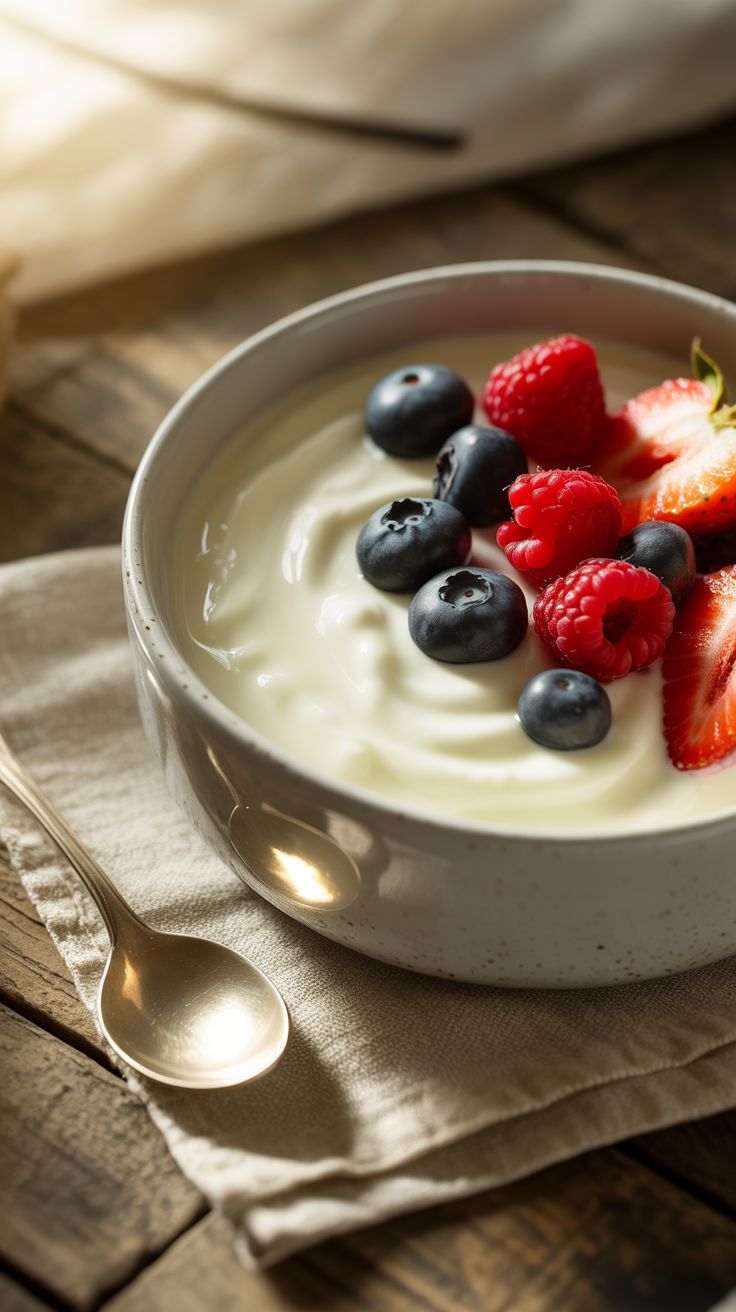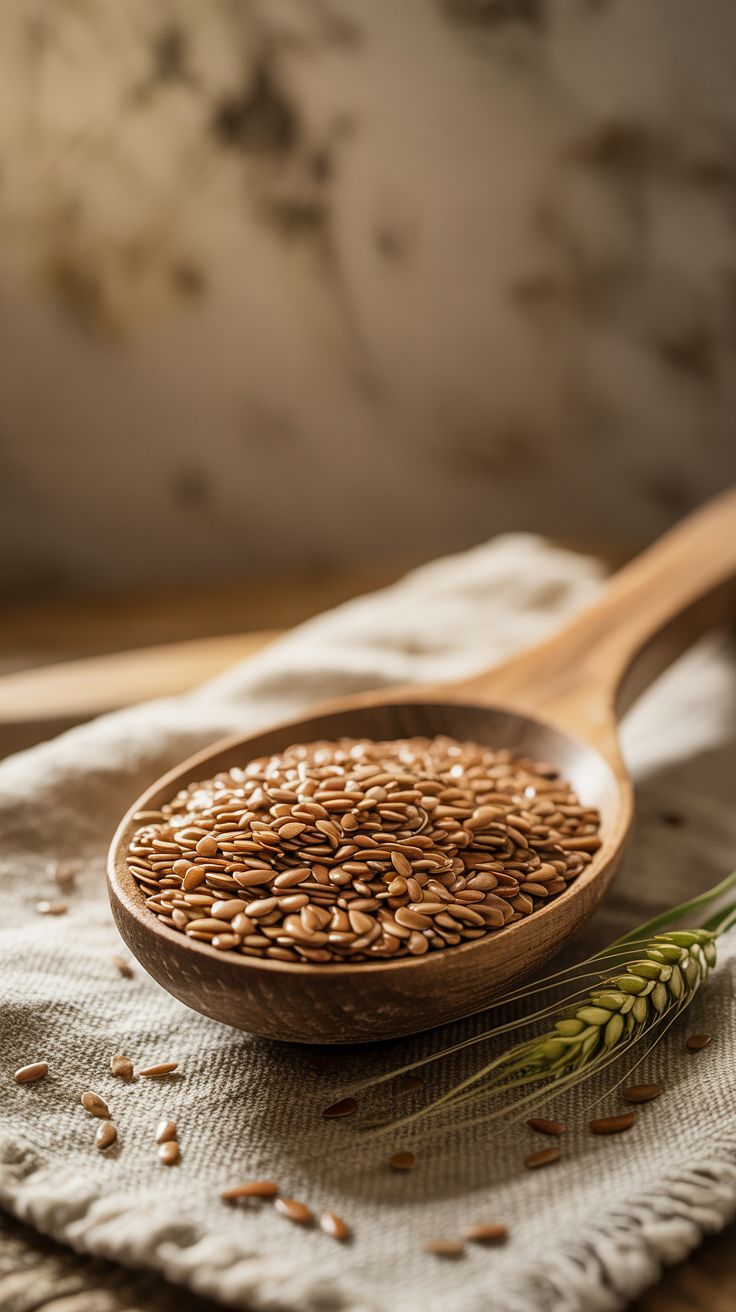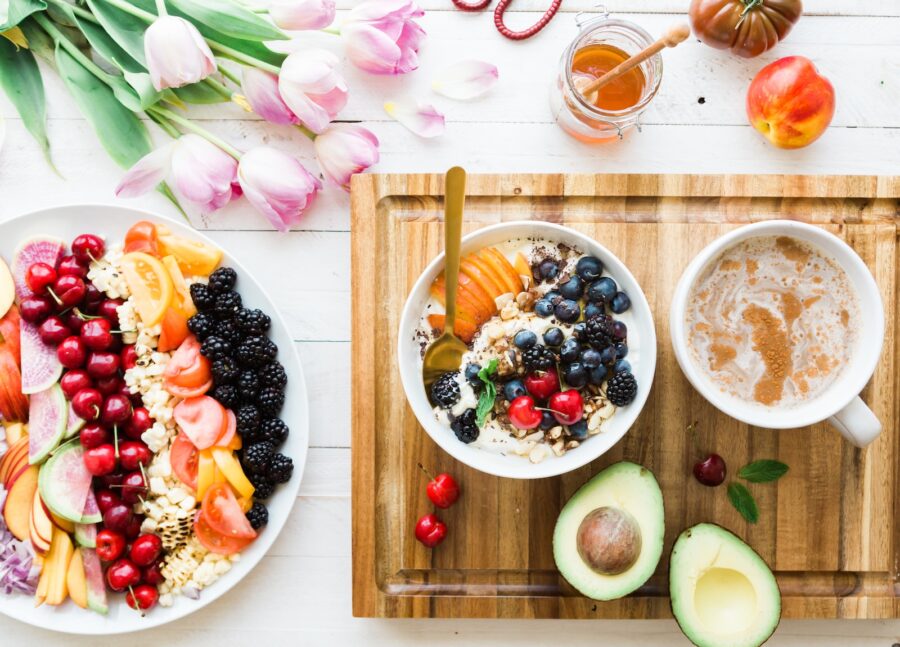Whole Foods
Whole Foods That Aid in Digestion
If you’ve ever had that heavy, uncomfortable feeling after a meal, you know how much digestion can affect your day. The truth is, a happy gut isn’t just about avoiding belly bloat. It’s tied to your energy, mood, and even your immune system.
And here’s the good news: some of the best digestion helpers aren’t fancy supplements or complicated powders. They’re simple, wholesome foods you can pick up on your next grocery run.
So grab your fork and let’s dive into the delicious world of digestion-friendly fare!
Ginger

You should try adding ginger to your meals for its beneficial effects on digestion. Ginger has long been praised for its health benefits, especially when it comes to improving digestive function. Incorporating this powerful root into your diet can help alleviate common digestive issues such as bloating, indigestion, and nausea.
- Digestive Aids: The health benefits of ginger are attributed to its unique properties that aid in digestion. It contains compounds called gingerols and shogaols, which have anti-inflammatory and antimicrobial effects on the gastrointestinal tract. These properties help soothe inflammation in the gut and promote better digestion.
- Digestive Enzymes: Ginger stimulates the production of digestive enzymes, which play a crucial role in breaking down food and absorbing nutrients efficiently. By enhancing enzyme activity, ginger helps improve overall digestion and nutrient absorption.
- Digestive Disorders: Not only does ginger support optimal digestion, but it also helps relieve discomfort associated with digestive disorders like irritable bowel syndrome (IBS) or acid reflux. Its natural soothing properties can calm an upset stomach and reduce symptoms like heartburn or abdominal pain.
Incorporating ginger into your meals is simple. You can grate fresh ginger over stir-fries or soups, brew a cup of soothing ginger tea after meals, or even add dried powdered ginger to baked goods for a touch of warmth and flavor.
Peppermint

Peppermint is known to help soothe the digestive system. If you’re looking for a natural way to ease any discomfort or bloating after a meal, peppermint may just be your answer.
One popular way to enjoy the benefits of peppermint is by drinking peppermint tea. The warm infusion of minty goodness can provide relief and promote healthy digestion.
Another option is using peppermint oil, which has been used for centuries to aid in digestion. By applying a few drops of peppermint oil topically or inhaling its aroma, you can stimulate the production of digestive enzymes and calm an upset stomach.
To better understand how peppermint can benefit your digestive system, take a look at this table:
Peppermint Tea Peppermint Oil Soothes Stimulates Calms Relieves Promotes Aids Eases Enhances
Papaya

Papaya is a delicious tropical fruit that contains enzymes which can support healthy digestion. If you want to improve your digestive health and feel more connected to the world around you, incorporating papaya into your diet can be a great choice.
Here are three reasons why papaya benefits your digestion:
- Enzyme Power: Papayas contain an enzyme called papain, which helps break down proteins in the stomach and aids in digestion. This enzyme can assist in the breakdown of tough-to-digest foods, making it easier for your body to absorb nutrients.
- Fiber Boost: High in dietary fiber, papaya promotes regular bowel movements and prevents constipation. By keeping your digestive system running smoothly, you’ll not only feel physically better but also experience a sense of belonging within yourself as well.
- Gut Health Support: The natural fibers found in papayas act as prebiotics, feeding the beneficial bacteria in your gut and promoting a healthy balance of microorganisms. A thriving gut microbiome is essential for overall well-being and a sense of connection with others.
Pineapple

If you’re looking for a tropical fruit that adds a burst of sweet flavor to your diet, pineapple is an excellent choice. Not only does it taste delicious, but it also offers numerous health benefits. Pineapple is packed with vitamins, minerals, and antioxidants that can help support your overall well-being.
| Benefits | Description |
|---|---|
| Digestive Health | Pineapple contains bromelain, an enzyme that aids in digestion by breaking down proteins and reducing bloating. |
| Immune Support | The high vitamin C content in pineapple can boost your immune system and help fight off common illnesses. |
| Anti-Inflammatory | Bromelain also has anti-inflammatory properties, which may help reduce inflammation and relieve joint pain. |
Incorporating pineapple into your diet is easy with these delicious recipes:
- Pineapple Smoothie: Blend fresh pineapple chunks with coconut milk and a handful of spinach for a refreshing and nutritious smoothie.
- Grilled Pineapple Salsa: Combine diced pineapple with tomatoes, onions, jalapenos, cilantro, lime juice, salt, and pepper for a tangy salsa perfect for dipping or topping grilled meats.
- Pineapple Teriyaki Chicken: Marinate chicken breasts in a mixture of pineapple juice, soy sauce, garlic powder, ginger powder, and brown sugar before grilling or baking for a flavorful meal.
Fennel

When you’re looking to add a unique flavor and crunchy texture to your dishes, fennel is a great choice. Not only does it enhance the taste of your meals, but it also offers numerous health benefits.
Here are three reasons why you should incorporate fennel into your diet:
- Improves digestion: Fennel has been used for centuries as a natural remedy for digestive issues. It contains anethole, a compound that helps relax the muscles in the gastrointestinal tract, reducing bloating and discomfort.
- Boosts immune system: Fennel is rich in vitamin C, which plays a crucial role in supporting your immune system and fighting off infections. Adding fennel to your meals can help strengthen your body’s defense mechanisms.
- Supports heart health: Fennel contains potassium and fiber, both of which are essential for maintaining a healthy cardiovascular system. Potassium helps regulate blood pressure levels while fiber aids in reducing cholesterol levels.
To make the most out of fennel’s health benefits, try incorporating it into various recipes such as salads, soups, or roasted vegetable dishes. You can also enjoy its crunchy texture by adding sliced fennel to sandwiches or using it as a dip for fresh vegetables.
Yogurt with Live Cultures

Not all bacteria are bad. Yogurt with live and active cultures brings probiotics into the mix, the “good guys” that help balance your gut microbiome. Just look for plain yogurt without added sugars and you’ll be feeding your belly what it needs to thrive.
However, if you’re lactose intolerant and can’t consume dairy-based yogurts, there are plenty of alternative options available that still provide important probiotic benefits.
Yogurt Alternatives for Lactose-Intolerant
To help you make an informed choice, here is a table showcasing some popular dairy-free options:
| Yogurt Alternative | Base Ingredient | Probiotic Strains |
|---|---|---|
| Coconut Milk Yogurt | Coconut milk | Lactobacillus acidophilus, Bifidobacterium bifidum |
| Almond Milk Yogurt | Almond milk | Lactobacillus plantarum, Streptococcus thermophilus |
| Soy Milk Yogurt | Soy milk | Lactobacillus casei, Lactobacillus rhamnosus |
| Oat Milk Yogurt | Oat milk | Bifidobacterium lactis, Lactococcus lactis |
Probiotic-Rich Fermentation Process
Including fermented foods like yogurt in your diet introduces beneficial probiotics into your gut, which support a healthy balance of microorganisms and contribute to improved digestion. The fermentation process is what gives these foods their probiotic benefits.
During fermentation, bacteria or yeasts convert sugars into alcohol or acids, creating an acidic environment that inhibits the growth of harmful bacteria. This process not only preserves the food but also enhances its nutritional value.
Fermented foods are rich in live cultures that help populate your gut with good bacteria, improving your body’s ability to break down and absorb nutrients from food. These probiotics can boost your immune system, reduce inflammation, and even promote mental well-being.
So go ahead and enjoy some deliciously tangy yogurt or sauerkraut knowing that it’s doing wonders for your gut health.
Probiotic Benefits Fermentation Process Explanation Boosts Immune System Converts sugars into alcohol/acids Reduces Inflammation Creates an acidic environment Improves Nutrient Absorption Inhibits growth of harmful bacteria Promotes Mental Well-being Enhances food preservation and nutrition
Kimchi

If you’re looking to improve your gut health, then kimchi is a must-try. This traditional Korean side dish offers numerous benefits for your digestive system.
Packed with probiotics from the fermentation process, kimchi can help support a healthy balance of bacteria in your gut.
- Probiotic Powerhouse: Kimchi is naturally fermented, which means it contains beneficial bacteria that promote a healthy gut. These probiotics help improve digestion, boost the immune system, and reduce inflammation.
- Vitamin-Rich: Kimchi is loaded with vitamins A, B, and C, as well as minerals like calcium and iron. These nutrients support overall wellness and contribute to a strong immune system.
- Antioxidant Punch: The vibrant red color of kimchi comes from the chili peppers used in its preparation. These peppers are rich in antioxidants that protect against free radicals and may lower the risk of chronic diseases.
Incorporating this traditional Korean side dish into your meals not only enhances flavor but also supports your gut health journey for a sense of belonging within your body.
Sauerkraut

Sauerkraut is a fermented cabbage dish that can help support a healthy gut. If you’re looking to improve your digestion and feel more connected to your body, sauerkraut might just be the answer. Not only does it taste delicious, but it also offers numerous health benefits.
Let’s take a look at some of the sauerkraut health benefits in the table below:
Health Benefits Description Probiotics Sauerkraut is packed with beneficial bacteria Digestive Aid It aids in digestion and promotes a healthy gut Immune Booster The probiotics in sauerkraut can strengthen your immune system Nutrient-rich It contains vitamins C and K as well as fiber
Now that you know about the amazing health benefits of sauerkraut, let’s explore some recipe ideas to incorporate this wonderful dish into your meals:
- Sauerkraut Salad: Mix sauerkraut with fresh vegetables like cucumbers, carrots, and bell peppers for a crunchy and tangy salad.
- Reuben Sandwich: Layer sauerkraut on rye bread with corned beef, Swiss cheese, and Russian dressing for a flavorful sandwich.
- Sauerkraut Soup: Add sauerkraut to a hearty vegetable or potato soup for an extra kick of flavor.
- Sausage and Sauerkraut Skillet: Cook sausage and sauerkraut together in a skillet for an easy one-pot meal.
Flaxseeds

Now that you’ve learned about the benefits of sauerkraut for digestion, let’s dive into another powerful ingredient: flaxseeds. These tiny seeds may be small in size, but they pack a big punch when it comes to aiding your digestive system.
Here are three reasons why flaxseeds are beneficial for your digestion:
- High in fiber: Flaxseeds are an excellent source of dietary fiber, which helps regulate bowel movements and prevents constipation. This fiber acts as a gentle scrubber, sweeping through your digestive tract and keeping things moving smoothly.
- Omega-3 fatty acids: Flaxseeds are rich in omega-3 fatty acids, which have anti-inflammatory properties that can help soothe digestive issues such as bloating and inflammation. These healthy fats also support the growth of beneficial gut bacteria.
- Lignans: Flaxseeds contain lignans, compounds that have been shown to have antioxidant and estrogen-like effects. These lignans may help reduce the risk of certain digestive disorders like diverticulitis and inflammatory bowel disease.
Incorporating flaxseeds into your diet is easy with these delicious recipes:
- Flaxseed smoothie bowl: Blend frozen berries, almond milk, yogurt, and a tablespoon of ground flaxseeds for a nutritious breakfast or snack.
- Flaxseed crackers: Mix ground flaxseeds with water, spices, and whole wheat flour to make crispy homemade crackers.
- Flaxseed energy balls: Combine dates, nuts, cocoa powder, and ground flaxseeds to create protein-packed energy balls perfect for on-the-go snacking.
With their numerous benefits and versatile usage in recipes, adding flaxseeds to your diet is a simple way to support your digestion while enjoying delicious meals!
Chia Seeds

To enhance your digestive health, incorporating chia seeds into your diet is a simple and effective choice. Chia seed benefits are numerous and can help you feel more connected to your body and overall well-being.
These tiny seeds are packed with fiber, omega-3 fatty acids, antioxidants, and essential minerals like calcium, magnesium, and phosphorus. By adding chia seeds to your meals or snacks, you can support a healthy digestive system.
One of the great things about chia seeds is their versatility in recipes. You can sprinkle them on top of yogurt or oatmeal for added texture and nutrition.
- Egg Substitute: They also work well as an egg substitute in baking recipes for those who follow a vegan diet or have egg allergies. Simply mix one tablespoon of chia seeds with three tablespoons of water and let it sit for a few minutes until it forms a gel-like consistency.
- Chia Pudding: For a refreshing summer treat that aids digestion, try making a chia seed pudding by combining chia seeds with your favorite plant-based milk and sweetener of choice. Let it sit in the refrigerator overnight, and in the morning you’ll have a deliciously creamy pudding that’s good for your gut. Click here for our delicious Vanilla Chia Pudding Parfait recipe.
Incorporating chia seeds into your diet not only supports digestive health but also provides other benefits like improved heart health and increased energy levels. So why not give them a try? Your body will thank you.
Frequently Asked Questions
How Much Ginger Should I Consume Daily to Aid in Digestion?
To aid in digestion, you should consume a moderate amount of ginger daily. Ginger has been known to have numerous benefits for digestion. Additionally, incorporating papaya into your diet can also support healthy digestion.
Can Peppermint Cause Any Side Effects When Consumed in Large Quantities?
Peppermint overdose can cause side effects like heartburn and allergic reactions. It’s important to be cautious, just like with ginger. Remember, taking care of your digestion is essential for overall well-being.
Are There Any Specific Benefits of Eating Papaya for Digestion?
Eating papaya can have specific benefits for digestion. It contains enzymes that aid in breaking down proteins, making it easier for your body to digest food. Ginger consumption can also help with digestion by reducing inflammation and soothing the stomach.
How Can Pineapple Help in Improving Digestion?
Pineapple can help improve digestion by containing bromelain, which aids in breaking down proteins. It also helps reduce inflammation and bloating. Incorporating ginger, papaya, and fennel into your diet can further enhance digestion while avoiding peppermint side effects.
What Are Some Other Ways to Incorporate Fennel Into My Diet for Better Digestion?
To incorporate fennel into your diet for better digestion, try fennel recipes like roasted fennel with veggies or fennel and citrus salad. Additionally, drinking fennel tea can help improve digestion.

























































